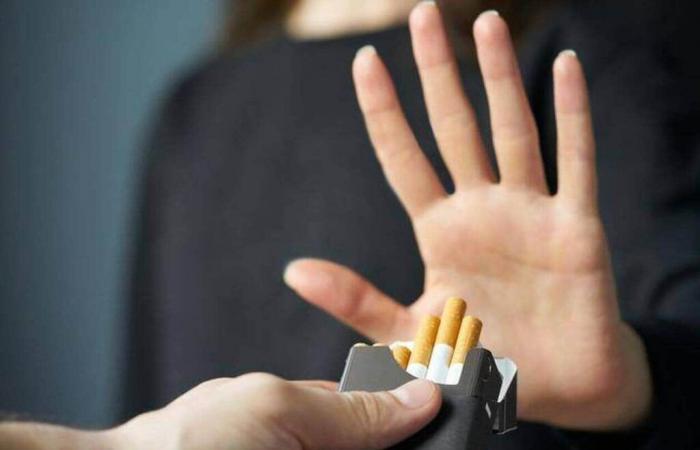
By the evening edition.
November is “no tobacco month”. This challenge offers smokers to stop smoking for 30 days. The health benefits are very rapid. Here they are.
November sees the return of the “tobacco-free month” operation: a challenge launched on the internet to break away from cigarettes.
The opportunity, perhaps, to stub out your last cigarette, if you are a smoker? It's worth a try, in any case… Starting with a day at least. Then another. Up to abstaining for a week, a month, or even much more… “A month without smoking is five times more likely to quit permanently” recalls Tabac Info Service. If you are a smoker and you decide to quit, this will result in immediate benefits for your health! Here's how your body will react after the last puff…
Read also: What are the keys to truly quitting smoking? Advice from two tobacco specialists
20 minutes later
About 20 minutes after the last cigarette, heart rate and blood pressure return to normal. “Nicotine consumption increases heart rate and blood pressure because the arteries harden, explains an addictologist. Which considerably increases the risk of heart attack…” The specialist also points out that an artisanal cigarette (rolled) is equivalent to two industrial cigarettes (in a packet), that a cigarillo is the equivalent of three normal cigarettes and that a cigar represents 40 cigarettes.
Read also: Electronic cigarettes should be treated like tobacco, says WHO
8 hours later
“After 8 hours, the body begins to eliminate nicotine and carbon monoxide,” continues the tobacco specialist. Carbon monoxide is a toxic gas found in car exhaust pipes. “This gas attaches to red blood cells instead of oxygen, leading to dull skin, delayed healing and reduced muscle performance. » “Smokers” (who do not inhale smoke into their lungs) absorb less carbon monoxide than those who puff heavily on their cigarettes.
24 to 72 hours later
The lungs regain some breath. They begin to evacuate mucus and smoke residue. Note that “48 hours after stopping, the risk of heart attack begins to decrease,” underlines the addictologist. Once the chemical substances are eliminated, the senses come back to life: taste and smell come back into play. Goodbye to the tar that was deposited in the lungs!
Read also: Is smoking one cigarette a day really less risky than a whole pack?
2 to 12 weeks later
From the first week, sleep is better. After a few weeks, stopping smoking will have significant benefits on breathing. The bronchi clear up. The cough and fatigue will gradually subside. The Tabac Info Service site also emphasizes that at this stage of withdrawal, the ex-smoker gradually regains “sexual vigor”.
3 to 9 months later
“Chemicals cause reduced immunity,” recalls the tobacco specialist. Over the months following quitting smoking, the body's immunity strengthens. The body is less sensitive to external aggressions and less subject to inflammation. On the side of the lungs, the bronchial cilia better evacuate mucus from the bronchi and the cleaning capacity of the lungs increases. The risk of infection is reduced considerably.
A year later and more
It takes at least a year for the risks of illness linked to tobacco consumption to begin to disappear. The risk of having a heart attack is halved. “After five years, the risk of heart attack is equal to that of a person who has never smoked,” estimates the doctor. It is only between ten and twenty years after the last cigarette that an ex-smoker returns to a life expectancy equivalent to a person who has never smoked. “Particularly in people who quit smoking early,” underlines the French Federation of Cardiology.





